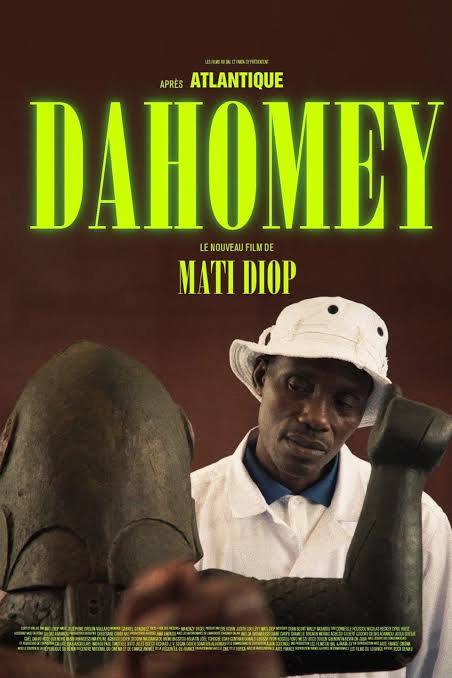26 Voices: Review of Dahomey
Mati Diop’s 2024 documentary Dahomey is an artistic and haunting exploration of cultural restitution, colonialism, and the enduring wounds of stolen heritage. The film focuses on the return of 26 royal treasures from Dahomey, exhibited in Paris, to their rightful home in Benin. Yet, rather than celebrating this act of repatriation uncritically, Diop crafts a poignant and thought-provoking narrative that examines what this partial restitution means for both the objects and the people.
The documentary opens in a strikingly poetic manner, adopting the perspective of one of the objects—a nameless artifact reduced to the number “26.” The narration is sparse, yet deeply resonant: “They call me 26. Not 24, not 25. Why don’t they call me by my real name?” Each time the film shifts to this perspective, the screen fades to black, creating a jarring yet fitting metaphor for the object’s displacement and silencing. This recurring motif mirrors the restraints placed on the objects, confined within the sterile, bureaucratic frameworks of French institutions.
Diop’s camera lingers on the physicality of the objects as they are packed into coffin-like boxes, emphasizing the lifeless, mechanical way they have been handled. The haunting visuals and atmospheric sound design underscore the stark contrast between the vibrant, cultural significance of these treasures and the cold, transactional approach of their treatment in the West.
A pivotal moment in the documentary features a classroom debate among university students in Benin. While some voice pride and emotion over the return of the artifacts, others raise critical questions: Should cultural restitution be prioritized over more urgent national needs, such as education, healthcare, or economic development? This conversation reflects the film’s refusal to offer easy answers. Instead, Dahomey prompts viewers to consider the layered complexities of restitution and the responsibilities that come with it—culturally, politically, and economically.
The documentary culminates in a deeply emotional public debate among Beninese citizens, grappling with the limited restitution. A woman’s poignant statement—“Our own culture didn’t learn our own language”—captures the devastating impact of colonialism, where the erasure of language and identity intertwines with the theft of art.
Importantly, the film also acknowledges that these 26 returned items are only a fraction of what remains held in French museums. As of 2021, over 90,000 African artifacts remain in French public collections, with more than 7,000 from Benin alone (according to the Musée du Quai Branly). This statistic underscores the immense scale of loss and the long road still ahead in addressing colonial-era theft.
Dahomey is not just a documentary; it is a poetic call to action, urging audiences to reflect on the complexities of cultural restitution and the larger reckoning with colonial histories. Diop’s masterful storytelling invites viewers to sit with the discomfort, loss, and hope that surround these objects’ return, making Dahomey an unforgettable film.
Available on Amazon Prime, Apple TV, and Fandango.
